#future of ai in healthcare
Text
The Generative AI Revolution: Transforming Industries with Brillio
The realm of artificial intelligence is experiencing a paradigm shift with the emergence of generative AI. Unlike traditional AI models focused on analyzing existing data, generative AI takes a leap forward by creating entirely new content. The generative ai technology unlocks a future brimming with possibilities across diverse industries. Let's read about the transformative power of generative AI in various sectors:
1. Healthcare Industry:
AI for Network Optimization: Generative AI can optimize healthcare networks by predicting patient flow, resource allocation, etc. This translates to streamlined operations, improved efficiency, and potentially reduced wait times.
Generative AI for Life Sciences & Pharma: Imagine accelerating drug discovery by generating new molecule structures with desired properties. Generative AI can analyze vast datasets to identify potential drug candidates, saving valuable time and resources in the pharmaceutical research and development process.
Patient Experience Redefined: Generative AI can personalize patient communication and education. Imagine chatbots that provide tailored guidance based on a patient's medical history or generate realistic simulations for medical training.
Future of AI in Healthcare: Generative AI has the potential to revolutionize disease diagnosis and treatment plans by creating synthetic patient data for anonymized medical research and personalized drug development based on individual genetic profiles.
2. Retail Industry:
Advanced Analytics with Generative AI: Retailers can leverage generative AI to analyze customer behavior and predict future trends. This allows for targeted marketing campaigns, optimized product placement based on customer preferences, and even the generation of personalized product recommendations.
AI Retail Merchandising: Imagine creating a virtual storefront that dynamically adjusts based on customer demographics and real-time buying patterns. Generative AI can optimize product assortments, recommend complementary items, and predict optimal pricing strategies.
Demystifying Customer Experience: Generative AI can analyze customer feedback and social media data to identify emerging trends and potential areas of improvement in the customer journey. This empowers retailers to take proactive steps to enhance customer satisfaction and loyalty.
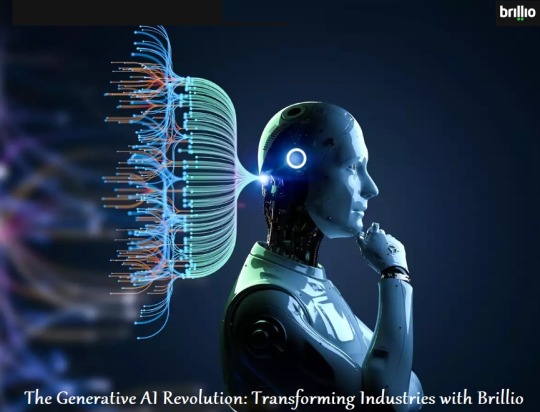
3. Finance Industry:
Generative AI in Banking: Generative AI can streamline loan application processes by automatically generating personalized loan offers and risk assessments. This reduces processing time and improves customer service efficiency.
4. Technology Industry:
Generative AI for Software Testing: Imagine automating the creation of large-scale test datasets for various software functionalities. Generative AI can expedite the testing process, identify potential vulnerabilities more effectively, and contribute to faster software releases.
Generative AI for Hi-Tech: This technology can accelerate innovation in various high-tech fields by creating novel designs for microchips, materials, or even generating code snippets to enhance existing software functionalities.
Generative AI for Telecom: Generative AI can optimize network performance by predicting potential obstruction and generating data patterns to simulate network traffic scenarios. This allows telecom companies to proactively maintain and improve network efficiency.
5. Generative AI Beyond Industries:
GenAI Powered Search Engine: Imagine a search engine that understands context and intent, generating relevant and personalized results tailored to your specific needs. This eliminates the need to sift through mountains of irrelevant information, enhancing the overall search experience.
Product Engineering with Generative AI: Design teams can leverage generative AI to create new product prototypes, explore innovative design possibilities, and accelerate the product development cycle.
Machine Learning with Generative AI: Generative AI can be used to create synthetic training data for machine learning models, leading to improved accuracy and enhanced efficiency.
Global Data Studio with Generative AI: Imagine generating realistic and anonymized datasets for data analysis purposes. This empowers researchers, businesses, and organizations to unlock insights from data while preserving privacy.
6. Learning & Development with Generative AI:
L&D Shares with Generative AI: This technology can create realistic simulations and personalized training modules tailored to individual learning styles and skill gaps. Generative AI can personalize the learning experience, fostering deeper engagement and knowledge retention.
HFS Generative AI: Generative AI can be used to personalize learning experiences for employees in the human resources and financial services sector. This technology can create tailored training programs for onboarding, compliance training, and skill development.
7. Generative AI for AIOps:
AIOps (Artificial Intelligence for IT Operations) utilizes AI to automate and optimize IT infrastructure management. Generative AI can further enhance this process by predicting potential IT issues before they occur, generating synthetic data for simulating scenarios, and optimizing remediation strategies.
Conclusion:
The potential of generative AI is vast, with its applications continuously expanding across industries. As research and development progress, we can expect even more groundbreaking advancements that will reshape the way we live, work, and interact with technology.
Reference- https://articlescad.com/the-generative-ai-revolution-transforming-industries-with-brillio-231268.html
#google generative ai services#ai for network optimization#generative ai for life sciences#generative ai in pharma#generative ai in banking#generative ai in software testing#ai technology in healthcare#future of ai in healthcare#advanced analytics in retail#ai retail merchandising#generative ai for telecom#generative ai for hi-tech#generative ai for retail#learn demystifying customer experience#generative ai for healthcare#product engineering services with Genai#accelerate application modernization#patient experience with generative ai#genai powered search engine#machine learning solution with ai#global data studio with gen ai#l&d shares with gen ai technology#hfs generative ai#generative ai for aiops
0 notes
Text
youtube
The rapid advancement of artificial intelligence (AI) has sparked a revolutionary transformation in various industries, and perhaps one of the most profound impacts has been witnessed in the healthcare sector. AI is redefining the way medical professionals diagnose, treat, and manage diseases, ultimately enhancing patient outcomes, reducing costs, and improving overall healthcare delivery.
One of the primary areas where AI is making a significant impact is medical diagnostics. AI-powered algorithms have demonstrated remarkable accuracy in interpreting medical images such as X-rays, MRIs, and CT scans. These algorithms can quickly and accurately identify anomalies, such as tumors, fractures, and other abnormalities, often with a level of precision that rivals or even surpasses human radiologists. This not only speeds up the diagnostic process but also reduces the chances of human error, leading to earlier detection and treatment of diseases.
AI is also playing a crucial role in personalized medicine. By analyzing vast amounts of patient data, including genetic information and medical histories, AI algorithms can identify patterns and correlations that enable more targeted and effective treatment plans. This allows healthcare providers to tailor interventions to each individual's unique needs, maximizing treatment efficacy and minimizing adverse effects.
In addition to diagnostics and personalized medicine, AI is reshaping the drug discovery and development process. Traditional drug development is often time-consuming and costly, with many potential candidates failing during clinical trials. AI-driven approaches, such as machine learning and deep learning, can analyze massive datasets to predict the effectiveness and safety of potential drugs, leading to faster and more efficient drug development pipelines. AI algorithms can also help identify new drug targets and repurpose existing drugs for new therapeutic purposes, potentially revolutionizing the way we approach the treatment of diseases.
AI is ushering in a new era of possibilities in the healthcare industry. From improved diagnostics and personalized treatment plans to streamlined operations and drug discovery, AI is driving significant advancements that have the potential to revolutionize patient care and reshape the healthcare landscape as we know it. As technology continues to evolve, stakeholders must work collaboratively to harness AI's potential while safeguarding patient privacy and ensuring that the benefits are accessible to all segments of society.
How AI is Revolutionizing The Modern Healthcare Industry
#how ai is revolutionizing the modern healthcare industry#ai role in modern healthcare#limitless tech 888#ai in healthcare#ai revolution#revealing the secrets of ai role in modern healthcare#artificial intelligence#ai#modern healthcare#how ai helps in healthcare#ai in medicine and healthcare#future of ai in healthcare#ai healthcare in 2023#digital health#healthcare#how ai is changing the future of healthcare#ai machine learning#artificial intelligence in healthcare#Youtube
0 notes
Text
The rapid advancement of artificial intelligence (AI) has sparked a revolutionary transformation in various industries, and perhaps one of the most profound impacts has been witnessed in the healthcare sector. AI is redefining the way medical professionals diagnose, treat, and manage diseases, ultimately enhancing patient outcomes, reducing costs, and improving overall healthcare delivery.
One of the primary areas where AI is making a significant impact is medical diagnostics. AI-powered algorithms have demonstrated remarkable accuracy in interpreting medical images such as X-rays, MRIs, and CT scans. These algorithms can quickly and accurately identify anomalies, such as tumors, fractures, and other abnormalities, often with a level of precision that rivals or even surpasses human radiologists. This not only speeds up the diagnostic process but also reduces the chances of human error, leading to earlier detection and treatment of diseases.
AI is also playing a crucial role in personalized medicine. By analyzing vast amounts of patient data, including genetic information and medical histories, AI algorithms can identify patterns and correlations that enable more targeted and effective treatment plans. This allows healthcare providers to tailor interventions to each individual's unique needs, maximizing treatment efficacy and minimizing adverse effects.
In addition to diagnostics and personalized medicine, AI is reshaping the drug discovery and development process. Traditional drug development is often time-consuming and costly, with many potential candidates failing during clinical trials. AI-driven approaches, such as machine learning and deep learning, can analyze massive datasets to predict the effectiveness and safety of potential drugs, leading to faster and more efficient drug development pipelines. AI algorithms can also help identify new drug targets and repurpose existing drugs for new therapeutic purposes, potentially revolutionizing the way we approach the treatment of diseases.
AI is ushering in a new era of possibilities in the healthcare industry. From improved diagnostics and personalized treatment plans to streamlined operations and drug discovery, AI is driving significant advancements that have the potential to revolutionize patient care and reshape the healthcare landscape as we know it. As technology continues to evolve, stakeholders must work collaboratively to harness AI's potential while safeguarding patient privacy and ensuring that the benefits are accessible to all segments of society.
How AI is Revolutionizing The Modern Healthcare Industry
#how ai is revolutionizing the modern healthcare industry#ai role in modern healthcare#limitless tech 888#ai in healthcare#ai revolution#revealing the secrets of ai role in modern healthcare#artificial intelligence#ai#modern healthcare#how ai helps in healthcare#ai in medicine and healthcare#future of ai in healthcare#ai healthcare in 2023#digital health#healthcare#how ai is changing the future of healthcare#ai machine learning#artificial intelligence in healthcare
0 notes
Text
AI in Healthcare: Empowering Diagnosis and Treatment
The healthcare industry is in a constant state of evolution, continually embracing new technologies that enhance patient outcomes and improve the quality of care. Among the most promising advancements of recent times is the integration of AI in Healthcare. AI’s role in healthcare is gaining significance by the day, offering the potential to revolutionize the fields of diagnosis and treatment.
AI…

View On WordPress
0 notes
Text
#Artificial Intelligence in Healthcare#AI in Healthcare#Advantages of AI in healthcare#Limitations of AI in healthcare#Future of AI in healthcare
1 note
·
View note
Text
Applications of GenAI in Healthcare
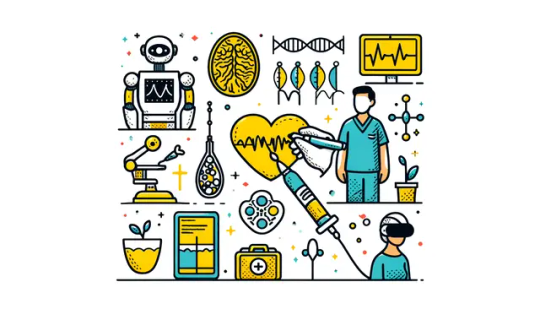
Generative AI in Medical Imaging revolutionizes healthcare practices by streamlining various processes. In diagnostics, Generative AI enhances the accuracy of disease identification through detailed image analysis, leading to quicker treatment decisions and improved patient outcomes.
Moreover, this technology facilitates personalized treatment plans tailored to individual patients based on comprehensive imaging data. Beyond diagnostics, Generative AI assists in drug discovery by simulating molecular structures, accelerating research efforts to develop new treatments. Its applications extend to improving operational efficiency in healthcare settings, optimizing resource allocation, and workflow management.
By integrating Generative AI into healthcare systems, providers can enhance patient care, drive innovation, and pave the way for transformative advancements in medical practices.
For more in-depth insights on the transformative applications of Generative AI in healthcare, explore:
#generative ai#healthcare#generative ai in healthcare#medical imaging#medical technology#future of healthcare#technology#technologies#healthcare technology
3 notes
·
View notes
Text
Inteligência Artificial - Cooperação entre NVIDIA e Microsoft

A Microsoft e a NVIDIA anunciaram integrações importantes no campo da Inteligência Artificial generativa para empresas em todo o mundo. Saiba mais em: https://news.microsoft.com/2024/03/18/microsoft-and-nvidia-announce-major-integrations-to-accelerate-generative-ai-for-enterprises-everywhere/
______
Direitos de imagem: © Microsoft (via https://news.microsoft.com/)
#MSFT#Microsoft#NVDA#NVIDIA#IA#AI#MicrosoftAzure#Azure#Chip#SuperChip#GraceBlackwell#Omniverse#Copilot#AzureAI#Empresas#Business#enterprise#developer#healthcare#digitalization#europe#world#technology#future#futurenow
2 notes
·
View notes
Text
Unleashing Gen AI: A Revolution in the Audio-Visual Landscape
Artificial Intelligence (AI) has consistently pushed the boundaries of what is possible in various industries, but now, we stand at the brink of a transformative leap: Generative AI, or Gen AI. Gen AI promises to reshape the audio-visual space in profound ways, and its impact extends to a plethora of industries. In this blog, we will delve into the essence of Gen AI and explore how it can bring about a sea change in numerous sectors.
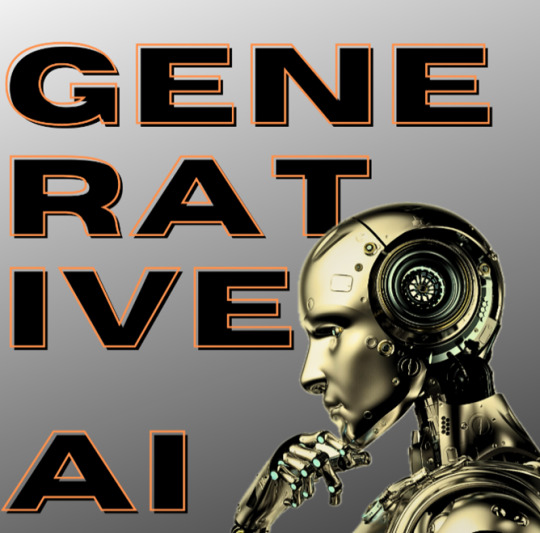
Decoding Generative AI (Gen AI)
Generative AI is the frontier of AI where machines are capable of creating content that is remarkably human-like. Harnessing neural networks, particularly Recurrent Neural Networks (RNNs) and Generative Adversarial Networks (GANs), Gen AI can generate content that is not just contextually accurate but also creatively ingenious.
The Mechanics of Gen AI
Gen AI operates by dissecting and imitating patterns, styles, and structures from colossal datasets. These learned insights then fuel the creation of content, whether it be music, videos, images, or even deepfake simulations. The realm of audio-visual content is undergoing a monumental transformation courtesy of Gen AI.
Revolutionizing the Audio-Visual Realm
The influence of Generative AI in the audio-visual sphere is profound, impacting several dimensions of content creation and consumption:
1. Musical Masterpieces:
Gen AI algorithms have unlocked the potential to compose music that rivals the creations of human composers. They can effortlessly dabble in diverse musical genres, offering a treasure trove of opportunities for musicians, film score composers, and the gaming industry. Automated music composition opens the doors to boundless creative possibilities.
2. Cinematic Magic:
In the world of film production, Gen AI can conjure up realistic animations, special effects, and entirely synthetic characters. It simplifies video editing, making it more efficient and cost-effective. Content creators, filmmakers, and advertisers are poised to benefit significantly from these capabilities.
3. Artistic Expression:
Gen AI is the artist's secret tool, generating lifelike images and artworks. It can transform rudimentary sketches into professional-grade illustrations and graphics. Industries like fashion, advertising, and graphic design are harnessing this power to streamline their creative processes.
4. Immersive Reality:
Gen AI plays a pivotal role in crafting immersive experiences in virtual and augmented reality. It crafts realistic 3D models, environments, and textures, elevating the quality of VR and AR applications. This technological marvel has applications in gaming, architecture, education, and beyond.
Industries Set to Reap the Rewards
The versatile applications of Generative AI are a boon to numerous sectors:
1. Entertainment Industry:
Entertainment stands as a vanguard in adopting Gen AI. Film production, music composition, video game development, and theme park attractions are embracing Gen AI to elevate their offerings.
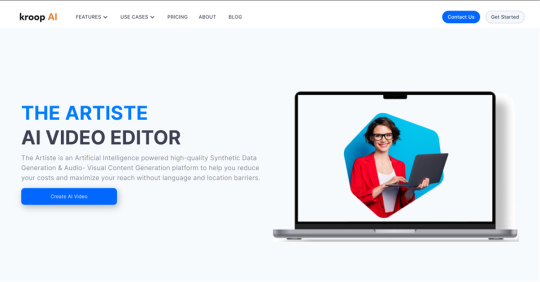
2. Marketing and Advertising:
Gen AI streamlines content creation for marketing campaigns. It generates ad copies, designs visual materials, and crafts personalized content, thereby saving time and delivering more engaging and relevant messages.
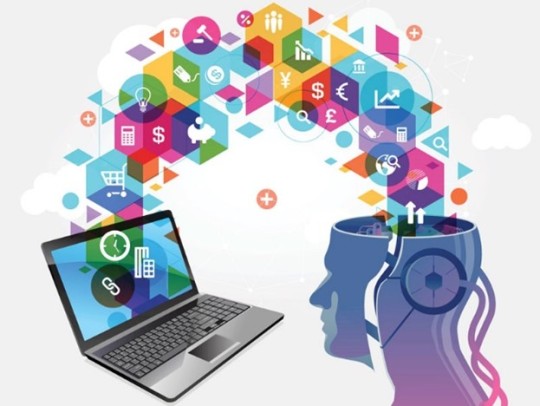
3. Healthcare and Medical Imaging:
In the realm of healthcare, Gen AI enhances medical imaging, aids in early disease detection, and generates 3D models for surgical planning and training.
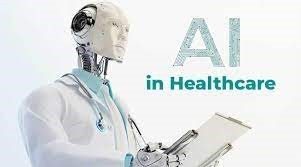
4. Education:
Gen AI facilitates the creation of interactive learning materials, custom tutoring content, and immersive language learning experiences with its natural-sounding speech synthesis.

5. Design and Architecture:
Architects and designers benefit from Gen AI by generating detailed blueprints, 3D models, and interior design concepts based on precise user specifications.

The Future of Gen AI
The journey of Generative AI is far from over, and the future holds promise for even more groundbreaking innovations. However, it is imperative to navigate the ethical and societal implications thoughtfully. Concerns related to misuse, privacy, and authenticity should be addressed, and the responsible development and application of Gen AI must be prioritized.
In conclusion, Generative AI is on the cusp of redefining the audio-visual space, promising an abundance of creative and pragmatic solutions across diverse industries. Embracing and responsibly harnessing the power of Gen AI is the key to ushering these industries into a new era of ingenuity and innovation.
#artificial intelligence#technology#generative ai#audiovisual#future#startup#healthcare#education#architecture#ai#design#entertainment
5 notes
·
View notes
Text
@embarrassedauthornerd @lialacleaf @morganas-pendragons @owlofthenight117 once again tagging y'all for my boy, sorry this is late, but thank you for encouraging and inspiring me to share more of my own writing.
Sir
(Part 1: Deviate)
Cameron-409 was ten years old and just starting in the process of discovering himself when he first thought to ask Dr. Halsey why his number was so much higher than the other children's.
"The original number of candidates chosen for the program was 300, carefully selected for the best possible genetic compatability for the program." she replied, not looking up from whatever project she was working on. "Then, 150 candidates, including you, with the next best results were chosen as backups in case any of the original children became unviable for any reason. When the program funding got cut to only 75 candidates, the 150 extra were kept documented as a formality; we had plenty better candidates in the case of an opening in the program. But, it became useful when the extraction of one of the original chosen 75 failed, and you were the only subject close enough to be considered a viable option."
"Oh. I see." he replied, doing his best to keep his disappointment out of his voice, before he was dismissed with an absent wave of Halsey's hand.
That was the day Cameron learned that he'd never be Dr. Halsey's first choice. No matter how hard he tried, worked, excelled, he was deemed subpar before he had even begun.
Which is why he was shocked 3 decades later when he was informed that he was chosen as the control subject for Chief and Cortana. The higher-ups wanted to see if Cortana was indeed a significant improvement over the standard AI when paired with a Spartan; so another was commissioned, and a candidate relatively comparable to John-117 was chosen.
The excitement of finally, finally being seen as more than "the backup" was almost enough to overshadow the dread of That Word. Cam hated any amount of ceremony for that reason: normally he could tune it out, whether because he could pretend it was said to someone else, or because they were in combat and his focus was on other priorities. But here, there was no mistaking who it was directed at and no other pressing issues to distract him.
"Ma'am." the officer addressed him, a smile on her face as she saluted.
He could tell by the excited look in her eye that she felt that word was such an honor. Spartan or no, a "woman" had been chosen as comparable to The Master Chief.
Cameron felt guilty.
"Ma'am, this is Echo. The two of you will be running the gauntlet after Chief and Cortana to give us a baseline for comparison." another officer said, holding a tray out to him with an AI chip on it. Cam carefully picked it up and stared at the small glowing rectangle for a moment, before plugging it into his helmet.
"Hello ma'am." a New Zealand accent greeted him, and this time it took all of his training and composure not to flinch. It definitely hit different coming from inside his head.
"The two of you have some time to get to know each other while the other two finish up, we'll let you know when it's ready for you."
Cameron nodded in acknowledgment before stepping into an empty adjacent meeting room and switching off his mic. After a moment, Echo spoke up again.
"Ma'am-"
"Cameron." the Spartan interjected immediately, "Or just Cam. Please."
After a moment, Echo replied, "Of course, Cameron." another pause, "Is something wrong?"
"No, I'm fine."
"Fine." the AI echoed as Cam took a seat, clearly not convinced, "Right. And you flinch every time you're called "Ma'am" because...?"
Cameron sighed, armor clanking as he leaned forward to rest his elbows on his knees, then was silent a long moment.
"How much are you required to report back to the research team?" he finally asked.
"Nothing; all data collection will be gathered from external observation, then compared for analysis."
Cam relaxed a little at that, "Can you keep this between us, then?"
When Echo answered to the affirmative, Cameron continued hesitantly.
"I'm... different than the other Spartans. Or at least that I know of. Being called "Ma'am" and "she" *hurts* in a way I can't explain, but the thought of being seen as a man... I want that more than I probably should. I don't know what's wrong with me-"
"Transgender is the word you're looking for, and around 10% of the human population identifies as trans." Echo interrupted before the Spartan could spiral into further negative thoughts, "That includes both female-to-male, and male-to-female transitioners. Gender affirming Healthcare includes hormone replacement therapy for both estrogen and testosterone, breast reduction or implants, and genital reconstruction surgery has been making progress." his voice softened as he continued, "There's nothing wrong with you, Cameron. You're not broken or defective, and you're not alone. Trans people have likely been around for as long as humans have been able to question the nature of our existence, and the community they helped build still celebrates how far they've come at least once a year on nearly every single human colony. With millions of people across the galaxy being trans, statistically, it was nearly certain that at least one Spartan was too. Guess you're just the lucky one!"
Cameron sat silent for long enough that Echo hadn't expected him to respond at all when he finally spoke up and asked, uncharacteristically timid, "Could I... ask you to call me sir when we're alone?"
Cam could hear the smile in the AI's voice as he responded,
"Yes, Sir."
#Cameron 409#Halo OC#Echo the AI#technically this is the Big Reveal for everyone who didn't already guess/know that Cam is trans#the future is safer for trans people so a higher percentage are out of the closet and trans Healthcare is better because I Want It To Be#I meant to finish and post this like a month ago but the dialogue kicked my ass#writing talking is Difficult#Big Nervous about this one#partially why I'm posting it at 3am#special shoutout to Dove for always being Cameron's biggest fan
6 notes
·
View notes
Text
Revolutionary Tech Innovations Shaping Our Future
Introduction
Technology is advancing rapidly, revolutionizing our lifestyles, workplaces, and interactions with the world. From artificial intelligence (AI) and quantum computing to renewable energy and biotechnology, revolutionary tech innovations are shaping our future in unprecedented ways. In this blog post, we will explore some of the most groundbreaking technological advancements and their potential to reshape our lives. Read to continue
#Innovation Insights#TagsAI advancements#AI in education#AI in healthcare#AR applications#augmented reality#biotech in healthcare#biotechnology breakthroughs#future of technology#IoT applications#IoT in smart cities#quantum computing#quantum computing benefits#renewable energy future#renewable energy technology#revolutionary tech innovations#smart cities#tech advancements#virtual reality#Technology#Science#business tech#Adobe cloud#Trends#Nvidia Drive#Analysis#Tech news#Science updates#Digital advancements#Tech trends
0 notes
Text
Sony unveils advanced microsurgery assistance robot
New Post has been published on https://thedigitalinsider.com/sony-unveils-advanced-microsurgery-assistance-robot/
Sony unveils advanced microsurgery assistance robot

youtube
Sony is making strides in the surgical robotics market with its newly developed microsurgery assistance robot. The Tokyo-based company recently announced its advanced system designed for automatic surgical instrument exchange and precision control.
Robot development and functionality
Sony, known for its electronic technologies, created this robot to assist in microsurgical procedures. The robot, used in conjunction with a microscope, works on extremely small tissues such as veins and nerves.
It tracks the movements of a surgeon’s hands and fingers using a highly sensitive control device. These movements are then replicated on a small surgical instrument that mimics the movement of the human wrist.
Addressing practical challenges
The new system aims to overcome practical challenges conventional surgical assistant robots face, such as interruptions and delays from manually exchanging surgical instruments. Sony’s R&D team achieved this through the miniaturization of parts, allowing for automatic exchange.
The system comprises a tabletop console operated by a surgeon and a robot that performs procedures on a patient. The surgeon’s hand movements on the console are replicated at a reduced scale (approximately 1/2 to 1/10) at the tip of the robot arm’s surgical instrument. Sony’s researchers envision the robot assistant being used in various surgical procedures.
Key features of the robot
1. Automatic instrument exchange
One of the robot’s standout features is its ability to automatically exchange instruments, made possible by the miniaturization of surgical tools. Multiple instruments can be compactly stored near the robot arm, allowing the left and right arms to make small movements to exchange tools quickly without human intervention.
2. High-precision control
The robot employs a highly sensitive control device to provide stable and precise control necessary for microsurgical procedures. This compact and lightweight device accurately reflects the delicate movements of human fingertips.
The tip of the surgical instrument, designed with multiple joints, moves smoothly like a human wrist. Sony aims for the robot to enable nimble operation and smooth movements that feel almost imperceptible to the user.

3. Advanced display technology
Equipped with a 1.3-type 4K OLED microdisplay developed by Sony Semiconductor Solutions Corporation, the robot provides operators with high-definition images of the surgical area and the movement of instruments.
4. Performance and testing
In February, Sony conducted an experiment at Aichi Medical University. Surgeons and medical practitioners who do not specialize in microsurgery used the prototype to create an anastomosis in animal blood vessels successfully.
Sony claims this was the world’s first instance of microvascular anastomosis using a surgical assistance robot with an automatic instrument exchange function.
Expert insights
Munekazu Naito, a professor in the Department of Anatomy at Aichi Medical University, remarked on humans’ superior brain and hand coordination, which allows for precise and delicate movements.
He noted that mastering microsurgery typically requires extensive training, but Sony’s robot demonstrated exceptional control over novice surgeons’ movements.
This technology enabled them to perform intricate tasks with skills comparable to experienced experts. Naito hoped surgical assistance robots would expand physicians’ capabilities and enhance advanced medical practices.
Future development and goals
Sony plans to collaborate with university medical departments and medical institutions to further develop and validate robotic assistance technology’s effectiveness. The ultimate goal is to resolve issues in the medical field and contribute to medical advancements through innovative robotic technology.
Read more about how AI and computer vision are advancing healthcare by reading the eBook below:
Computer Vision in Healthcare eBook 2023
Unlock the mystery of the innovative intersection of technology and medicine with our latest eBook, Computer Vision in Healthcare.
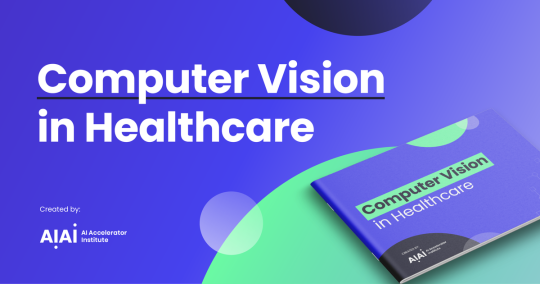

Like what you see? Then check out tonnes more.
From exclusive content by industry experts and an ever-increasing bank of real world use cases, to 80+
deep-dive summit presentations, our membership plans are packed with awesome AI resources.
Subscribe now
#4K#ai#amp#Anatomy#arm#Artificial Intelligence#blood#blood vessels#Brain#collaborate#computer#Computer vision#content#development#display#electronic#Experienced#Features#Future#hand#healthcare#how#human#humans#images#Industry#issues#it#Mastering#medical
0 notes
Text
Unlocking New Possibilities with AI Hardware: Strategies for Success in the Digital Age
In today's rapidly evolving technological landscape, the role of AI hardware has become increasingly vital. From powering smart devices to driving complex algorithms, AI hardware serves as the backbone of innovation across various industries. Let's delve into the world of AI hardware and explore its significance, applications, and future prospects.
Understanding AI Hardware
At its core, AI hardware comprises specialized processors and chips designed to accelerate AI tasks. Unlike traditional hardware, AI hardware is optimized to handle the unique computational requirements of artificial intelligence algorithms. These hardware components enable faster data processing, efficient model training, and real-time decision-making, making them indispensable in the realm of AI.
Applications Across Industries
AI hardware finds applications across diverse industries, revolutionizing processes and driving innovation. In healthcare, AI-powered hardware facilitates faster diagnosis, personalized treatment plans, and predictive analytics, ultimately improving patient outcomes. Similarly, in finance, AI hardware enhances fraud detection, risk assessment, and algorithmic trading, enabling more accurate decision-making and mitigating financial risks.
The Evolution of AI Hardware
Over the years, AI hardware has undergone significant evolution, fueled by advances in semiconductor technology and machine learning algorithms. From early iterations focused on basic AI tasks to cutting-edge hardware optimized for deep learning and neural networks, the evolution of AI hardware has been marked by exponential growth in computational power and efficiency.
Challenges and Opportunities
Despite its transformative potential, AI hardware also faces challenges such as scalability, energy efficiency, and compatibility with evolving AI models. Addressing these challenges requires continuous innovation and collaboration across the hardware and software domains. However, with each challenge comes an opportunity for growth and advancement, driving the development of more powerful, efficient, and versatile AI hardware solutions.
The Future of AI Hardware
Looking ahead, the future of AI hardware holds immense promise. With emerging technologies like quantum computing, neuromorphic computing, and photonic computing on the horizon, the possibilities for AI hardware are boundless. These advancements promise to push the boundaries of AI capabilities, enabling breakthroughs in areas such as natural language processing, autonomous systems, and intelligent robotics.
Conclusion
In conclusion, AI hardware plays a pivotal role in shaping the future of technology and innovation. From powering intelligent systems to enabling groundbreaking discoveries, AI hardware continues to push the boundaries of what's possible. As we navigate the ever-changing landscape of AI, one thing remains clear: the power of AI hardware to transform our world is only just beginning.
#AI hardware#Artificial intelligence#Technology#Innovation#Machine learning#Semiconductor#Healthcare#Finance#Future trends#Optimization
0 notes
Text
AI in Healthcare: Empowering Diagnosis and Treatment

The healthcare industry is in a constant state of evolution, continually embracing new technologies that enhance patient outcomes and improve the quality of care. Among the most promising advancements of recent times is the integration of AI in Healthcare. AI's role in healthcare is gaining significance by the day, offering the potential to revolutionize the fields of diagnosis and treatment.
AI possesses the ability to swiftly and accurately analyze vast amounts of data, empowering healthcare professionals to make well-informed decisions and provide personalized care to their patients. In this blog post, we will delve into the pivotal role that AI plays in healthcare and how it is transforming the approaches to diagnosis and treatment.
Understanding the Advantages of AI in Healthcare
The integration of artificial intelligence (AI) has ushered in a new era of healthcare, marking unparalleled advancements in patient care, diagnosis, and treatment. Through its capacity to analyze extensive datasets and learn from them, AI enables healthcare providers to make more informed decisions, ultimately resulting in better patient outcomes. Let's explore the diverse benefits of AI in healthcare in greater detail.
Enhancing Diagnostic Accuracy
AI surpasses human doctors in its ability to analyze medical images and other diagnostic tests with greater accuracy. By detecting patterns and subtle changes in medical images that may elude human observation, AI aids in delivering precise diagnoses, ultimately leading to improved patient outcomes.
Empowering Patient Care
AI-powered chatbots and virtual assistants provide round-the-clock patient support, offering prompt and dependable medical advice and guidance. This not only enhances patient satisfaction but also alleviates the burden on healthcare providers.
Accelerating Drug Development
By harnessing the power of AI to analyze copious amounts of data, healthcare professionals can identify potential drug candidates and expedite the drug development process. This acceleration leads to the rapid development of new drugs and therapies, ultimately benefiting patients in need.
Early Detection of Diseases
AI algorithms excel at identifying early signs of diseases and conditions, enabling healthcare providers to intervene promptly and potentially prevent the progression of such ailments. This proactive approach improves patient outcomes and reduces healthcare costs.
Personalized Treatment Strategies
Through the analysis of patient data, AI can formulate personalized treatment plans that cater to individual needs and medical histories. This personalized approach facilitates more effective treatments, resulting in enhanced patient outcomes.
This Post is Initially Published in aiTree.io!
0 notes
Text
seeing ai edits of hunter schafer as a targaryen is sooooo infuriating
#y’all hear abt one fan cast and drag it to hell#also like pick up a book and a pen??? procreate???? PICSART???? like leave the ai alone. ik i feel silly typing those stupid prompts#I HATE AI!!!!!!#if this is the future i want universal healthcare and to domesticate a shark!!!!
0 notes
Text
AI's Transformative Impact on Healthcare and Well-Being
Through its unparalleled ability to process vast troves of data, AI-driven systems have unlocked unprecedented insights, enabling healthcare professionals to make informed decisions that transcend the limitations of traditional methods.
0 notes